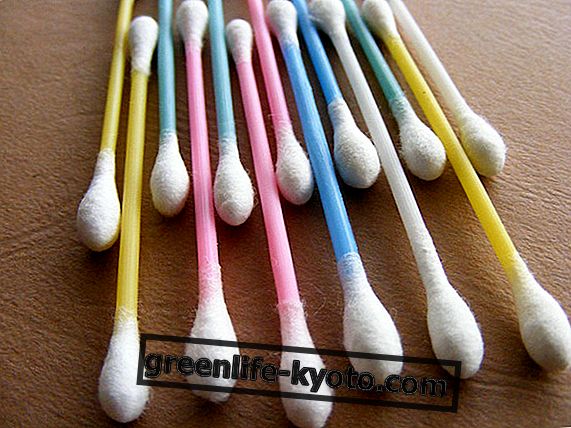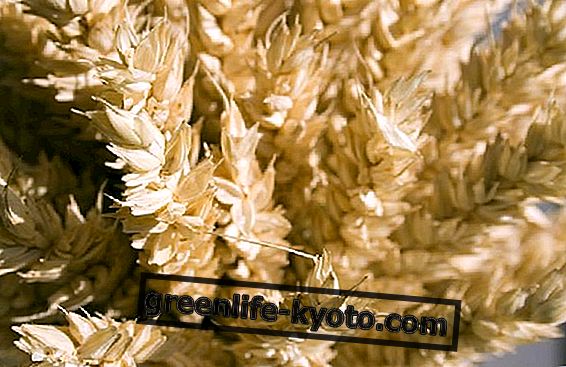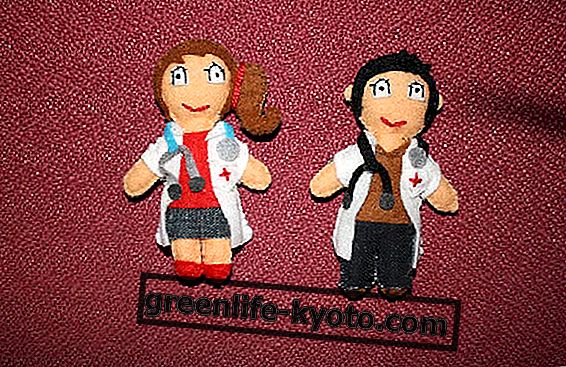
The ears, when they are healthy, do not need large cleaning operations .
They keep themselves clean, in a natural way, thanks to the action of small hairs that favor the transport of excess dirt outside the ear.
Why do the ears get dirty?
In the skin that covers the auditory canal there are glands that produce cerum and, a natural substance that helps the ear to defend itself from infections and from the aggressions of external agents .
Cerumen, therefore, is a useful substance; however, when it is compacted in the ear canals, the so-called plug is formed, causing discomfort.
The formation of the earwax cap can be favored by incorrect behavior, for example the use of cotton buds or the use of ear plugs during night rest.
Since no one is able to look inside the ears alone, to check for the presence of excess wax it is necessary to go to the otorino or even to the family doctor who, thanks to an instrument called otoscope, will check the cleanliness of the ears .
There are several methods for cleaning the ears, we will analyze three: cotton swabs, wax cones and olive oil.
Cleaning the ears with cotton buds
It is the most used method for cleaning the ears, yet ... we all know that cotton swabs can do a lot of damage and have few benefits.
Using the cotton swabs to clean the ears you risk pushing the earwax inside and making it even more compact. Moreover, especially in the case of children, going inside the ear runs the risk of puncturing the tympanic membrane .
When we clean our ears with cotton buds we have the feeling of having done a good job because we see that the stick gets dirty; yes, we may have eliminated a bit of wax, but it will be more what we pushed inside.
So no: let's not use them, but if we really can't help it, let's just clean up the outer ear .
Earache in children: prevention and remedies

The wax cones for cleaning the ears
The wax cones are waxed-up cones that are turned on and, by exploiting the chimney effect, they help the excess wax out.
They are about 20 cm long and have a narrower and wider end, which should be lit as you would with a candle. The heat given off by the combustion melts the wax.
This method is generally not recommended by otorinics because it involves various risks ; the most banal is that of not being able to eliminate all the wax but you can run into even more serious dangers; for example, there is a risk of burning the skin and / or hair; moreover, small embers can detach from the tip of the cone inserted into the auditory canal, with the risk of damaging not only the skin but also the tympanic membrane.

Cleaning the ears with olive oil
Our grandmothers, when they realized they needed a deeper cleaning of the ear, applied a couple of drops of warm olive oil inside.
Fatty substances such as, for example, olive oil and sweet almond oil, play an emollient action and favor the dissolution of excess earwax and its release.
The use of olive oil, or other substances with the same function, could be useful when a stopper is already present, but also for preventive purposes, especially in people particularly predisposed to an accumulation of wax.
Putting substances in the ears, however, is never a happy idea ; consequently, before resorting to this method it is advisable to seek the advice of the doctor .

But how do you clean your ears then?
If there are no particular risk conditions (such as some diseases or some professional risks, such as, for example, for masons, who are exposed to a huge amount of dust) nothing special needs to be done .
Among other things, we often clean our ears without even realizing it, for example every time we wash our hair and soap and water come into them ... Soap and water, in most cases, are a sufficient method.

Nose cleaning, 3 effective natural methods
Credit opening photo: dolgachov / 123RF Stock Photo













